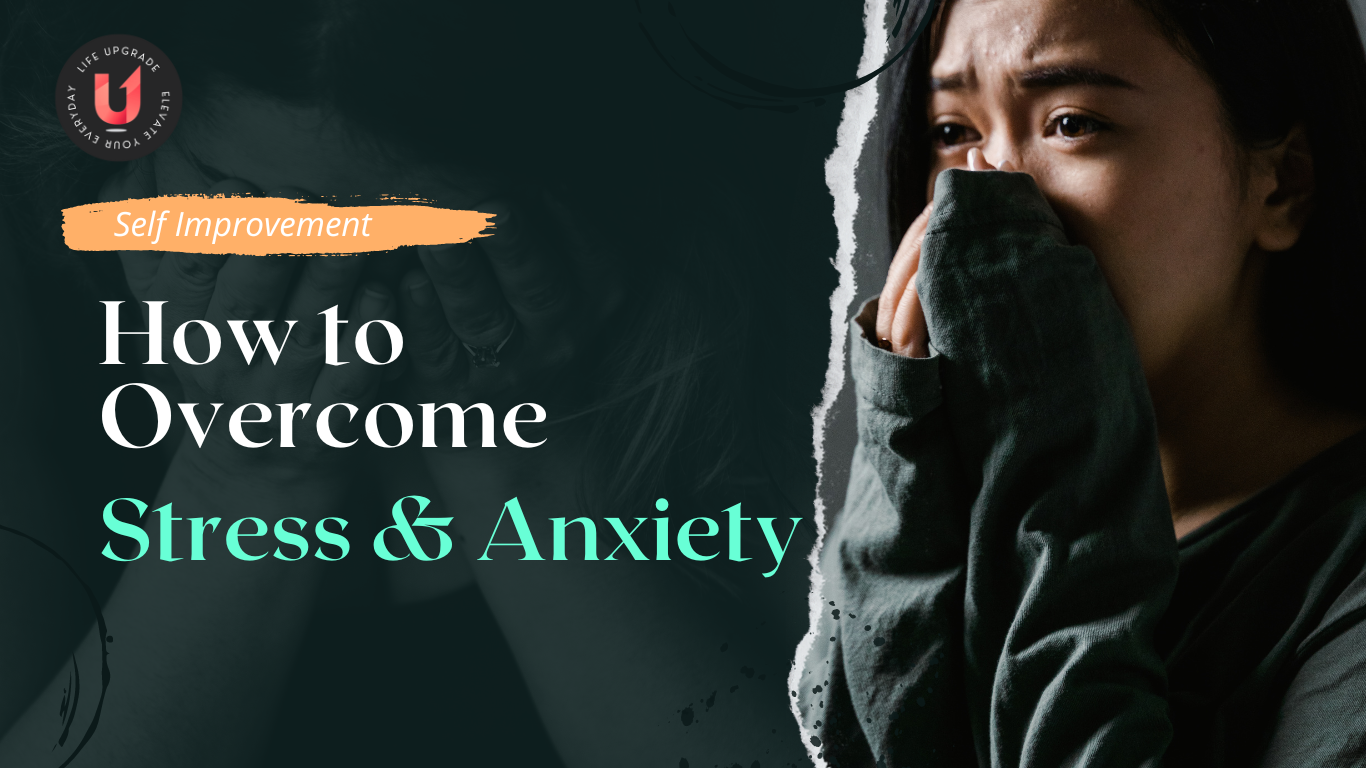How to Overcome Stress and Anxiety
Anxiety is a natural human response to stress or perceived danger, characterized by feelings of tension, worried thoughts, and physical changes like increased heart rate and sweating. While anxiety can be a normal reaction to stressful situations, excessive or chronic anxiety may indicate an anxiety disorder, which can significantly impact daily life. Here are some key points about anxiety:
Everyone feels anxious from time to time, but people with anxiety disorders experience frequent and severe worry that disrupts their normal life.
Types of Anxiety Disorders
- Generalized Anxiety Disorder (GAD): Persistent and excessive worry about various aspects of daily life.
- Panic Disorder: Recurrent panic attacks, which are sudden periods of intense fear.
- Social Anxiety Disorder: Intense fear of social situations and being judged or embarrassed.
- Specific Phobias: Severe fear of specific objects or situations (e.g., heights, spiders).
- Obsessive-Compulsive Disorder (OCD): Recurrent, unwanted thoughts (obsessions) and repetitive behaviors (compulsions).
- Post-Traumatic Stress Disorder (PTSD): Anxiety following a traumatic event.
Symptoms
- Emotional: Excessive worry, restlessness, irritability, and feeling overwhelmed.
- Physical: Increased heart rate, sweating, trembling, dizziness, and gastrointestinal issues.
- Cognitive: Difficulty concentrating, mind going blank, and irrational fears.
Causes
- Genetic Factors: Family history of anxiety or other mental health disorders.
- Brain Chemistry: Imbalances in neurotransmitters like serotonin and dopamine.
- Environmental Factors: Trauma, stress from work or personal life, and significant life changes.
- Medical Conditions: Certain health issues, such as thyroid problems or heart conditions, can contribute to anxiety.
Treatment Options
- Psychotherapy: Cognitive Behavioral Therapy (CBT) is particularly effective for treating anxiety disorders.
- Medication: Antidepressants (e.g., SSRIs and SNRIs), benzodiazepines, and beta-blockers.
- Lifestyle Changes: Regular exercise, healthy diet, adequate sleep, and stress management techniques.
- Mindfulness and Relaxation Techniques: Meditation, deep breathing exercises, and progressive muscle relaxation.
- Support Groups: Sharing experiences and coping strategies with others facing similar challenges.
Coping Strategies
- Stay Active: Physical activity can help reduce anxiety levels.
- Limit Caffeine and Alcohol: These substances can exacerbate anxiety symptoms.
- Practice Relaxation Techniques: Regular use of meditation and deep breathing exercises.
- Maintain a Support Network: Stay connected with family and friends who provide emotional support.
- Set Realistic Goals: Break tasks into smaller, manageable steps to avoid feeling overwhelmed.
Self-care can play an important role in supporting treatment. To help manage your symptoms of anxiety and promote your overall well-being, you can:
When to Seek Help
Avoid or cut down on alcohol and don’t use illicit drugs, which can make anxiety worse;
exercise regularly, even if it’s just a short walk;
stick to regular eating and sleeping habits as much as possible and eat a healthy diet;
learn relaxation techniques, such as slow breathing and progressive muscle relaxation; and
develop the habit of mindfulness meditation, even if it’s just a few minutes per day.
If anxiety is interfering with daily life, work, or relationships, it is important to seek professional help. A mental health professional can provide a proper diagnosis and develop a treatment plan tailored to individual needs.
Understanding anxiety and recognizing its symptoms are crucial steps in managing and treating it effectively. With appropriate treatment and coping strategies, individuals can lead fulfilling lives despite experiencing anxiety.









Thank you for this well-written and informative article. The practical tips you’ve shared are going to be very useful for my work.